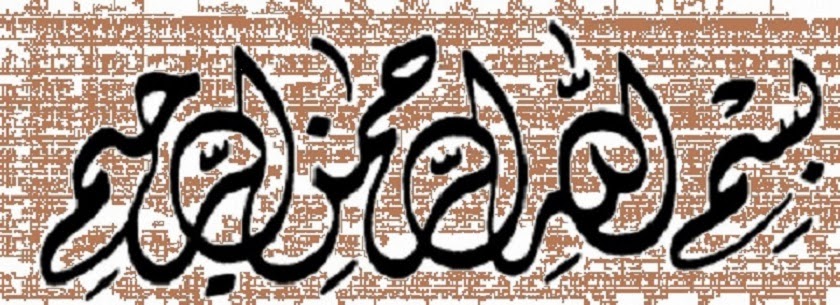فَٱمۡسَحُواْ بِوُجُوهِكُمۡ وَأَيۡدِيكُمۡۗ
“perform Tayammum with clean earth and rub therewith your faces and hands ” [4:43]
This Aayah in Surah an-Nisaa describes the process of at-Tayammum but its wording slightly differs from the description in Surah al-Maa’idah
فَٱمۡسَحُواْ بِوُجُوهِڪُمۡ وَأَيۡدِيكُم مِّنۡهُۚ
“ then perform Tayammum with clean earth and rub therewith your faces and hands” [5:6]
This is because the Aayah in Surah an-Nisaa comes in a context in which certain prohibitions (spiritual as well as physical) are being dictated surrounding the Salaat.
Whereas the Aayah in Surah al-Maai’dah is describing the process of purifying oneself from major and minor impurities (rulings pertaining to them).
Therefore the contexts are different, which highlights the importance of one completing all the prerequisites before praying; combining the fulfillment of commands as well as abstaining from the prohibitions.
إِنَّ ٱللَّهَ لَا يَغۡفِرُ أَن يُشۡرَكَ بِهِۦ وَيَغۡفِرُ مَا دُونَ ذَٲلِكَ لِمَن يَشَآءُۚ وَمَن يُشۡرِكۡ بِٱللَّهِ فَقَدِ ٱفۡتَرَىٰٓ إِثۡمًا عَظِيمًا
“Verily, Allah forgives not that partners should be set up with him in worship, but He forgives except that (anything else) to whom He pleases, and whoever sets up partners with Allah in worship, he has indeed invented a tremendous sin.” [4:48]
إِنَّ ٱللَّهَ لَا يَغۡفِرُ أَن يُشۡرَكَ بِهِۦ وَيَغۡفِرُ مَا دُونَ ذَٲلِكَ لِمَن يَشَآءُۚ وَمَن يُشۡرِكۡ بِٱللَّهِ فَقَدۡ ضَلَّ ضَلَـٰلاَۢ بَعِيدًا
“Verily! Allah forgives not (the sin of) setting up partners in worship with Him, but He forgives whom he pleases sins other than that, and whoever sets up partners in worship with Allah, has indeed strayed far away.” [4:116]
This Aayah appears twice in Surah an-Nisaa, but the endings differ.
This is because the contexts differ; the first Aayah comes as rebuke for a sect of the Jews taking Uzayr as a son of God, thus they have “invented a tremendous sin”.
Whereas the second Aayah comes in a context of rebuking the Mushriks of Arabia, stating that they are worshipping idols without any proof, “indeed strayed far away”.
وَلِلَّهِ مَا فِى ٱلسَّمَـٰوَٲتِ وَمَا فِى ٱلۡأَرۡضِۗ وَلَقَدۡ وَصَّيۡنَا ٱلَّذِينَ أُوتُواْ ٱلۡكِتَـٰبَ مِن قَبۡلِڪُمۡ وَإِيَّاكُمۡ أَنِ ٱتَّقُواْ ٱللَّهَۚ وَإِن تَكۡفُرُواْ فَإِنَّ لِلَّهِ مَا فِى ٱلسَّمَـٰوَٲتِ وَمَا فِى ٱلۡأَرۡضِۚ وَكَانَ ٱللَّهُ غَنِيًّا حَمِيدً۬ا (١٣١) وَلِلَّهِ مَا فِى ٱلسَّمَـٰوَٲتِ وَمَا فِى ٱلۡأَرۡضِۚ وَكَفَىٰ بِٱللَّهِ وَكِيلاً (١٣٢)
“(131) And to Allah belongs all that is in the heavens and all that is in the earth. And verily, We have recommended to the people of the Scripture before you, and to you (O Muslims) that you (all) fear Allah, and keep your duty to Him, But if you disbelieve, then unto Allah belongs all that is in the heavens and all that is in the earth, and Allah is Ever Rich (Free of all wants), Worthy of all praise. (132) And to Allah belongs all that is in the heavens and all that is in the earth. And Allah is Ever All-Sufficient as a Disposer of affairs.” [4:131-132]
The Aayah “And to Allah belongs all that is in the heavens and all that is in the earth” is repeated twice in succession but the endings of the Aayat change.
The Names and Attributes of Allaah “Ever Rich (Free of all wants), Worthy of all praise” refers to the context of divorce; that if a man and woman decide to separate after all avenues of reconciliation have been stressed, then Allaah is Bountiful and Ever-Able to Assist them, thus He is Rich and full of Praise (for His Help).
and Allaah Knows best.
